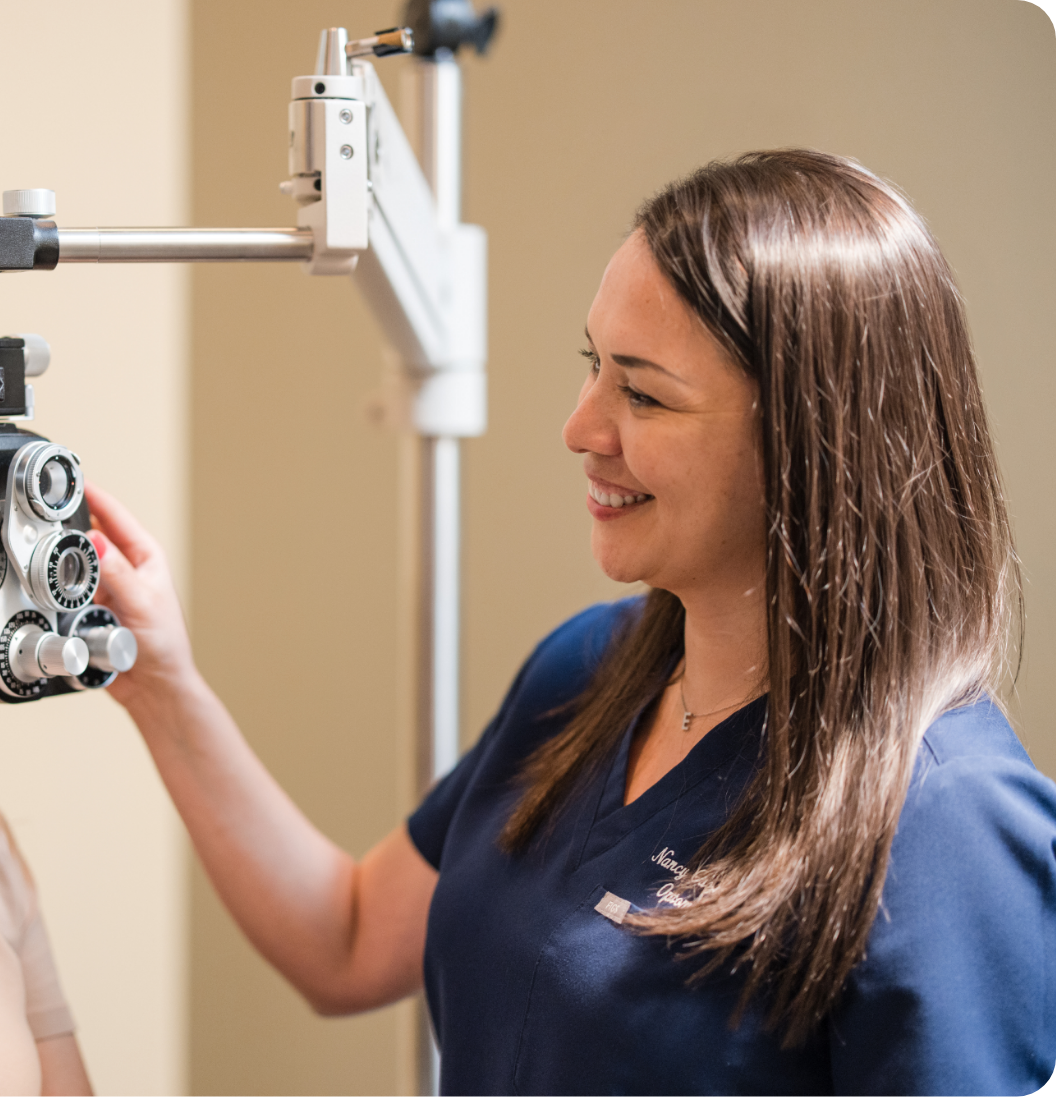What Are Cataracts?
A cataract is the clouding of your natural lens in the eye. As the normally crystal-clear lens clouds over, your vision becomes more impaired. It is a very common condition, affecting 1 in 6 American adults aged over 40. In the vast majority of cases, this can be resolved with straightforward surgery.
What Does Cataract Surgery Involve?
Cataract surgery is one of the safest procedures to restore your vision and reduce your need for glasses, only taking around 15 minutes to complete.
In preparation for cataract surgery, eye drops or a local anesthetic are administered to numb your eye for maximum comfort.
Once your eye is prepared, a small incision will be made and your eye surgeon will then use a process called phacoemulsification to gently break down the cataract into small particles using high-energy sound waves. The particles are then gradually removed from your eye using suction. Once this is complete and the cataract is removed, an artificial intraocular lens will be inserted into the lens capsule as a replacement.
Meet Your Board Certified Eye Surgeons
Recovery and Aftercare from Cataract Surgery
After surgery, you will use eye drops for several weeks to ensure your eyes heal properly. Everyone recovers at a different rate, and while some people find they have good vision the day after surgery, for others it can take up to two weeks. Several factors will affect your recovery time, including how dense your cataract is, your age and general health, and any other existing eye health issues.
Very few people feel pain after the surgery, although your eye may feel a bit irritated for a while. Any discomfort can be managed with over-the- counter pain relievers and functional vision is typically achieved within just a few days.
What Is the Cost of Cataract Surgery in San Antonio?
Our team of insurance specialists will help verify your insurance benefits prior to your cataract surgery and quote you the approximate amount you will pay out-of-pocket. Most cataract surgery procedures are either fully or partially covered by Medicare or private medical insurance (less the deductible or copay required by your insurance plan). Other factors affecting the price include the type of implant selected and the type of technology used during surgery.
In cases where the patient does not have medical insurance and does not qualify for Medicare a cash price will be quoted, and this price varies based on the type of implant selected and the type of technology used during surgery.
Our friendly team will help you navigate through the sometimes challenging process of insurance verifications and payment and financing options.
If you’re wondering whether there’s a way to minimize your need for glasses even further after cataract surgery, our premium lens options might be the perfect solution for you. Learn more about our advanced lens options for cataract surgery here.
You’re in Good Hands with Our Doctors
We are dedicated to giving all of our patients the best experience possible. We’re here to put your mind at ease; with our experienced ophthalmologists and state-of-the-art technology, we can guarantee you’ll receive the most professional, reliable, and personalized treatments in San Antonio.











